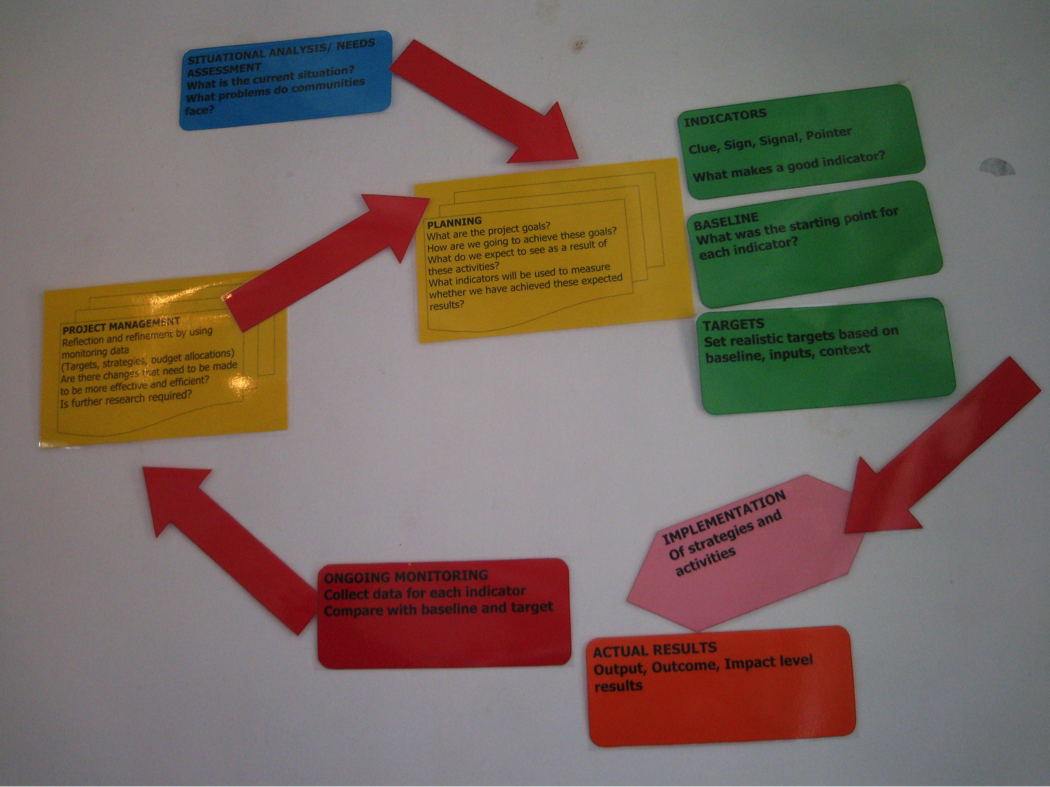Capacity Building Done The Firelight Way
We’re dedicated to building the capacity of community organizations. The way we see it, community organizations have a particular trajectory of growth and development and our role is to understand and respect that trajectory and support the organization on its own, unique path.
The very core of our grantmaking procedures, the application process, and ongoing relationship with the grantee-partners are the foundation of our capacity building. By asking questions that support reflection, we work to help our grantees reflect on what, why and how they are doing their work, and to what effect.
We use a few strategies to provide that capacity building support:
Program Consultants: Program Consultants are individuals who provide mentorship to our grantees. They are native to the countries they work in and act as a critical friend to Firelight grantee-partners. They conduct site visits to grantees (with staff and alone) but are also available for telephone or email dialogue with our grantees. They provide mentoring, training, information and advice on all aspects of organizational function and programming. We now have six Program Consultants in five countries.
Capacity Building Grants: We provide capacity building grants directly to community organizations. Specific activities supported through these grants may include access to training, funding strategic planning, or funding for technical expertise to address a particular aspect of the organization’s program or development. An example of this is with Ulupwa Project in Zambia. Ulupwa Project was able to create a business plan with Firelight funding. They worked with a Firelight Program Consultant and a facilitator to design a business to help raise funds for their organization. Their goal is to be able to replace Firelight funding with revenue from the business.
Grantee-Partner Networking and Peer Learning: Over the course of our work, we have come to appreciate the value of peer learning among community organizations. We support opportunities that bring grantee-partners together because it reduces their isolation and allows them to learn from each other.
Some of our key tactics to promote peer learning include:
Exchange Visits: These exchanges provide grantee-partners the opportunity to visit another organization in order to learn about a specific aspect of their programming or organizational management. As an example, Firelight supported a four-day grantee-partner exchange visit between Justice for Children Trust (JCT) of Zimbabwe and the Law and Development Association (LADA) of Zambia. JCT and LADA both train and work with paralegals to provide legal support to children and families. As a direct result of the exchange visit, JCT improved their training manuals and LADA developed a database similar to the one used by JCT.
Grantee Partner Networks: Grantee-partner networks bring together Firelight grantees in a forum where they can network, share information, and learn. The networks are occasional, maybe once or twice a year, but provide an important opportunity for organizations to connect to others doing similar work. In Malawi, our grantee-partners have developed two regional networks that work together to help groups who are struggling and also help us to identify new partners.
Learning Circles: Learning circles are a space where grantee-partners focus intensively on strengthening particular programming. We support learning circles among partners in Rwanda where groups come together to talk about programming for girls and their strengths, weaknesses and challenges in their attempt to improve the lives of girls. Read more about this in An Opportunity to Network.
Conferences: We support opportunities for grantee-partners to attend conferences where they can share their work as well as be exposed to new research, sound practice and new skills. For example, last January, we supported four grantees to attend a population council training. These four grantees from Rwanda, Malawi, and Kenya met in Nairobi, Kenya to learn more about improving their programming for girls.
Informational Resources: In resource limited settings, easy access to information is not a given. We facilitate access to information through various strategies. An example of this is our weekly Newsflash to share information with grantee-partners. The electronic newsletter includes relevant resources and publications, funding opportunities and donor profiles, upcoming events and conferences, tips and tools to enhance programming, and articles by grantees and news of their accomplishments. All the archives of Firelight’s Newsflash are stored on our website too.
Why is capacity building so important to us?
We realize that the community organizations we support are not perfect, and that they have strengths and weaknesses like any organization. By working with community organizations around these issues we help to improve their efficiency and effectiveness. This will ultimately benefit the children community organizations support and improve their overall wellbeing, which is the heart of Firelight’s work.


